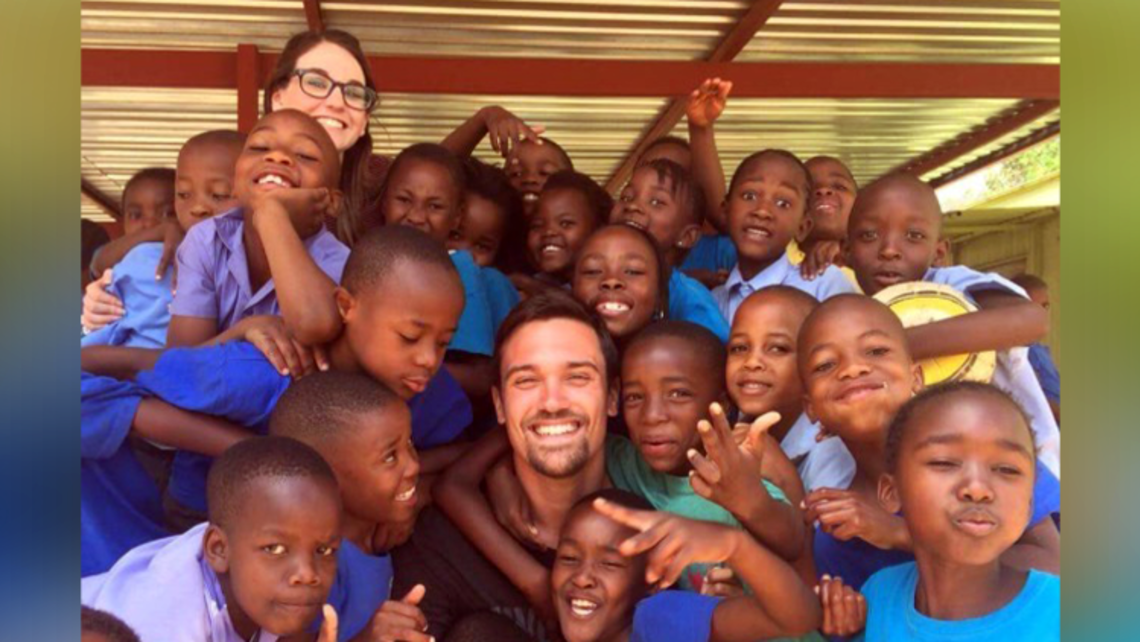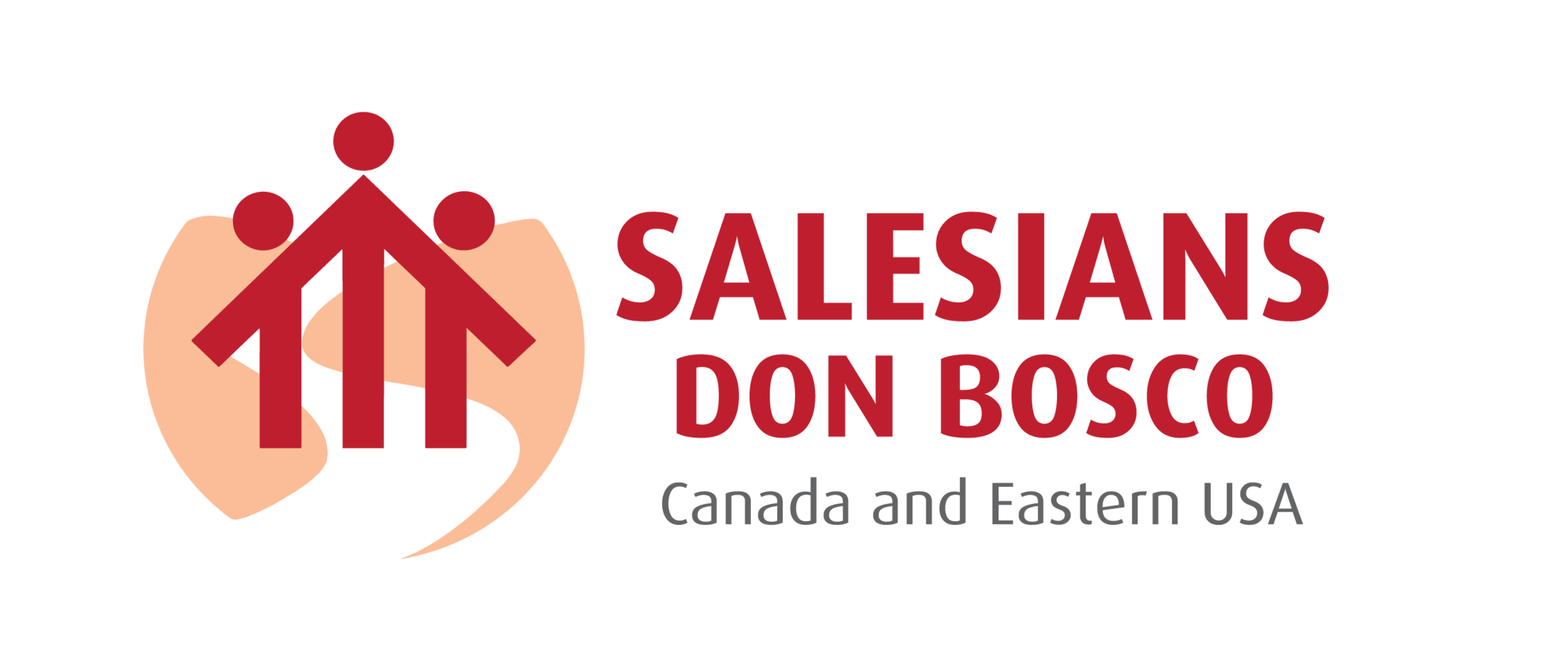
By Josiah Vacheresse, SLM
Yes, you could be a missionary
It has been challenging to write this reflection almost four years after our return. As time goes on, the reality of memory makes details fuzzy. I blur timelines and mix up names. In the confusion, however, there are certain things that I will never forget, and I know the same goes for my wife, Laura. The memories that stick out all have one thing in common: they’re about people. There’s the first phone conversation with Adam Rudin (Director of SLM program in New Rochelle, NY) that felt more like a chat with a long lost relative than an interview. There’s meeting Fr. Sean for the first time, in a back seat, listening to him question Br. (now Fr.) Craig’s driving abilities from JFK International Airport. Then there’s Fr. Steve Ryan dancing on a table at volunteer orientation. Moreover, there was everything it took to make our experience possible.
I remember the moment we decided that a year on mission was feasible. The question that finally tipped the scales wasn’t why; we knew we wanted to go. It was "why not?," which proved impossible to answer. Despite the fact that Laura and I both had rewarding careers in impactful fields, we noticed something was missing. We felt called to do something different. We also wanted to know what life was like outside of our own American bubble, to see and do all that we could wherever we could.
Then we got placed in South Africa
Nothing can prepare you to see abject poverty up close. You can watch a commercial, take in a documentary, or see it on a piece of paper, but nothing hits you like seeing it. If you think long enough, you risk a permanent existential crisis. It’s cognitive dissonance at its finest, particularly in South Africa, where you can drive 10 minutes to a mall from an informal settlement with no running water, electricity, or permanent housing. Perhaps the most striking thing about these environments was that life seemed to be regarded as cheap. Headlines detailed young people being killed over the equivalent of 50 cents with startling regularity. Additionally, government hospitals were understaffed, underfunded, and unsafe.
Yet life persisted
Sisters, like Sr. Helen (FMA), gave everything they had to construct and run schools in informal settlements, despite constant threats to their safety. Her kids welcomed us with open arms. We accompanied them on a field trip to the zoo, and I’ll never forget the bus ride, soccer games, and classrooms. Having worked on only natural light, teachers gave kids a respite from their everyday struggles, and those involved with the school risked everything to give them a chance to one day overcome those labors.
But, as they say, things fall apart
The school was eventually forced to close due to threats on the lives of the staff, and land disputes with the occupants of the informal settlement. The cycle of poverty ground its gears and broke down the mechanism for escape. Our next move was to Swaziland, where the lessons would continue. In Swaziland, (now referred to as Eswatini by order of the King, Africa’s last remaining absolute monarch) there are no formal policies against rape and there were no central policies for child protection. The HIV infection rate is over 35 percent, which is the highest in the world. Moreover, violence is prevalent and often comes to a head in areas where Salesians live and work.
When the body of Nobantu Sukati, a teacher and favorite of many of the girls at St. Anne’s School, was found in the bushes around the soccer field of the school in 2016, Fr. Martin (SDB) mobilized local leadership and sprang into action. A march was organized, the national press caught wind, and police and local officials signed up to lead the demonstration. T-shirts were printed, articles were written, and social media buzz built around the event. In the end, 3,000 people marched through the streets of Swaziland demanding concrete measures be taken against gender-based violence.
Making a difference
Laura and I often confronted all this violence, which would often take its toll on us. On a few occasions, we struggled with bouts of feeling defeated and isolated. We felt like hamsters on a wheel that never stopped and as if we were stuck on a train to nowhere. Yet the people we lived among just would not quit. For our part, inspired by the unfailing courage of the people around us, we did what we could. Having used her background as a licensed clinical social worker, Laura started a mental health therapy program at St. Anne’s School in Malkerns, just steps from where Nobantu was murdered. The program had startling results—100 percent of her students showed marked academic improvement after they received mental health services. When they were given the tools to deal with their issues, they used them. She also volunteered at a place called Hope House, which allowed people without access to healthcare (a large portion of the population) to receive dignified hospice and recovery services free of charge. Sr. Elsa (MSMHC) will always remain in my mind for the care she showed each and every patient.
As for me, I used my background in non-profit development to write grants, raise funds, and lead strategic planning efforts. The best part of my day though was coaching the boys basketball team at Salesian High School. I found my team captain one day having them run wind sprints and throwing a ball at them as hard as possible to teach them to catch. One five minute conversation later, he announced to the team that I would be their coach. I have never been around kids who were more unselfish and pure in their love for sport and each other. I’ll always treasure them.
Our time in Southern Africa led us to an important realization
If you’re going into service wanting to change the world overnight, you’re sure to be disappointed. Big societal changes are not the usual outcome of service. Acceptance of this truth leads to commitment to relationship building and serving the person in front of you. This kind of service has one huge, positive side effect—the relationships last. The effects are greater than a short-term commitment to changing big things. We are still able to talk to the people we met on mission and feel part of the Salesian Family. We were profoundly affected by that year and continue to be informed by the perspective we gained. Most importantly, we are inspired by the people we met and their perseverance in the face of seemingly insurmountable odds. They are who we remember—and they are what made it worthwhile.
Missionary Disciples Josiah and Laura Vacheresse served as SLMs in South Africa and Eswatini in 2018. They now live in Tennessee and are expecting their first child.






